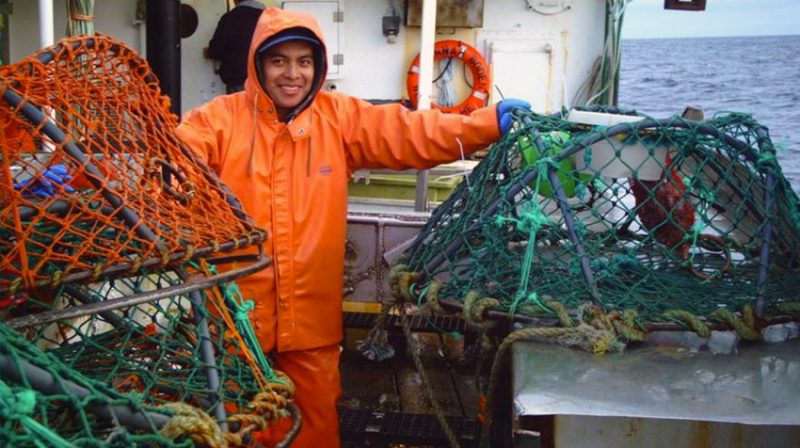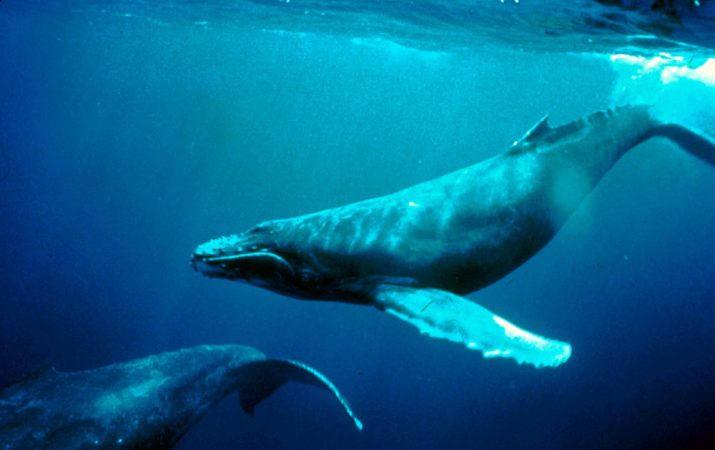Fishy chatter
Scientists record unidentified noises in the deep sea

Rodney Rountree thinks listening to fish is a good way to get to know them. Hundreds, if not thousands, of fish species make sounds, says Rountree, a fish biologist at the University of Massachusetts in Amherst. And he should know: He’s been eavesdropping on their chirps, grunts and farts for more than 10 years, mostly in shallow waters.
In 2005, Rountree launched an experiment to listen to deep-sea fishes. He and his colleagues placed hydrophones, or microphones that pick up underwater sounds, inside traps normally used to catch crabs. The researchers handed the devices over to sea-bound fishers, who dropped the hydrophones into a North Atlantic underwater canyon more than 600 meters (2,000 feet) deep.
Twenty-four hours later, the traps came up and the scientists took them back to the lab for a listen.
Those recordings proved the deep sea is anything but silent. The scientists reported hearing a “wealth of biological sounds.” Throughout the night and day that the hydrophones were on the seafloor, they picked up what Rountree describes as “drumming” and “duck-like” noises. His team describes them in a chapter of a new book titled The Effects of Noise on Aquatic Life.
Rountree says the recording turned up sounds of fin whales, humpback whales and pilot whales, as well as dolphins. In addition, the researchers heard a variety of unidentified sounds. Rountree and his colleagues suspect at least some of these came from fish, though more studies are needed to know for sure. Scientists don’t know how fish use sounds or why they’re important; this study is one of the first scientific investigations to suggest they even exist in deep waters.
Fishers have reported hearing fish sounds from the sea for hundreds of years, and more than 50 years ago, a British biologist suggested that deep-sea fish make noise underwater. Since then, a few scientists have tried to listen in, but Rountree and his team are the first to submerge hydrophones in the deep ocean for the sole purpose of listening to fish.
Listening to fish in their home habitat can provide scientists with a lot of information without disturbing the animals. Sounds can reveal where fish are living without catching them in nets. To know where fish spawn, for example, scientists often have to catch, kill or harass fish in their environment. A researcher who identifies the sound of the mating call of a certain fish, on the other hand, can know just by listening where that fish reproduces.
“If you know what a fish sound is, then you have a really valuable tool,” Rountree says. “Once you know a number of fish sounds, you can do a census based on the sounds.” The sounds are very quiet, which might be why people have had a hard time hearing them. “People have the tendency to listen for loud sounds, like frogs’,” he says, “but fish noises tend to be barely above background noise.”

The scientist’s previous work has led him to some surprising observations. A few years ago, for example, Rountree was recording the sounds of a remote lake in Maine when “all of a sudden I started hearing these fart sounds,” he recalls. “They are very distinct. I was really intrigued at that point, because my understanding was that the only type of fish that made fart sounds were Atlantic herring and Pacific herring.”
So far, there’s no direct evidence to confirm that deep-sea fish use sound to communicate, but perhaps that’s because the right measurement hasn’t been made. Rountree says that because so few studies have been done, in-depth studies of fish sounds offer the promise of many new discoveries. “Discovery makes my day,” he says. “This is a huge area we don’t know anything about. It just cries out to me, and I’ve got to go find out.”
Anyone who’s interested, he says, can get involved: “You can go almost anywhere, like local ponds, lakes and rivers, and be the first person to hear a fish sound, and the first person to describe it.”
POWER WORDS (Adapted from the New Oxford American Dictionary)
hydrophone A microphone that detects sound waves under water.
biology The study of living things.
census An official count or survey of a population.







